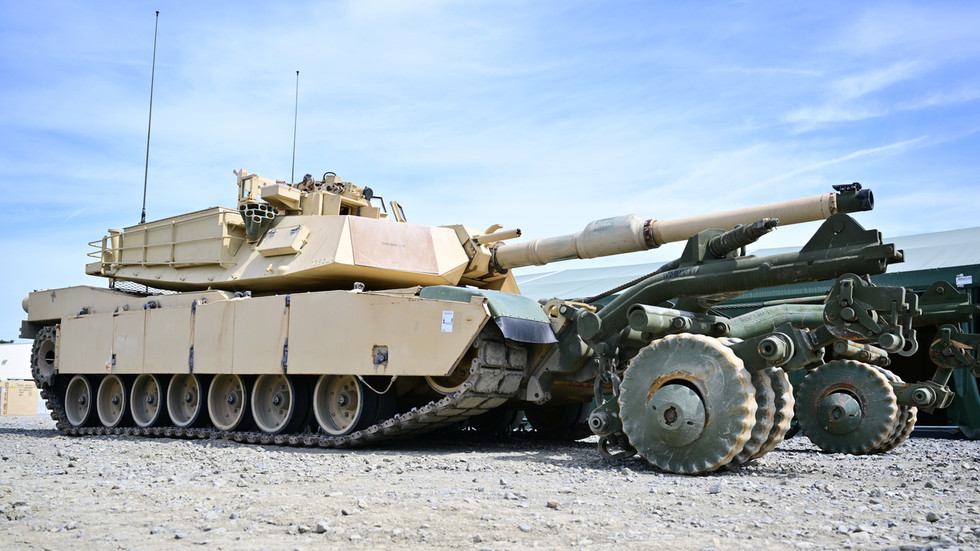Ukrainian forces now control more than 400 square miles of Russian territory Ukraine says it has solidified its control over parts of Russia's Kursk region. NPR's Michel Martin talks to retired Lieutenant General Ben Hodges about Ukraine's strategic goals behind the operation.
August 16, 20244:07 AM ET
Ukrainian forces now control more than 400 square miles of Russian territory
Ukraine says it has solidified its control over parts of Russia's Kursk region. NPR's Michel Martin talks to retired Lieutenant General Ben Hodges about Ukraine's strategic goals behind the operation.
MICHEL MARTIN, HOST:
Ukrainian President Volodymyr Zelenskyy says his country's forces now control nearly 400 square miles of Russian territory. Russian officials have largely confirmed this. Ukraine's incursion into Russia's Kursk region over a week ago is the largest Ukrainian military operation inside Russian territory since Russia launched its full-scale invasion in 2022. Pentagon officials say they're still trying to learn more about Ukraine's strategic goals here. We have called retired Lieutenant General Ben Hodges for this. He was commander of U.S. Army Europe from 2014 to 2017. That was just one assignment in his 38 years in the army. Good morning, General. Thank you for joining us.
BEN HODGES: Good morning.
MARTIN: So Ukrainian officials say they've taken more than 70 towns and villages. They say they've also taken hundreds of Russian troops prisoner during this operation so far. What leverage does this give Ukrainians at this point?
HODGES: Well, the most important thing that this Ukrainian offensive has achieved is a disruption of Russia's focus on the rest of the war. The Kremlin is - they're - you can tell from their reaction it's been chaotic, slow, disorganized and ineffective thus far. They're not sure how to react to this attack by Ukraine. And it has enabled Ukraine to change the narrative of the conflict. This doesn't mean the end of the war is in sight, obviously, but it changes the narrative that somehow Russian victory is inevitable. And more practically, it is enabling Ukraine to strike deeper into Russia against these airfields from which Russian aircraft have been killing innocent Ukrainian civilians.
MARTIN: But you know that Russian forces are making gains in Ukraine's east. Does Ukraine have enough manpower to hold or advance in the territory while still - in Russian territory while still continuing to defend its own territory?
HODGES: I think they do. And, of course, the Ukrainian general staff would have calculated the risk of forming or bringing together the troops that they did to launch this attack in the Kursk region. They would have calculated the risk to other parts of the front. I think it's important to remember that despite Russia's huge numerical advantage, they actually have made very, very small incremental gains in the east despite their advantages. So I'm not sure that Russia actually has the - any ability to exploit this situation, and I think the Ukrainians can see that.
MARTIN: I see your point, though - but there are reports of Russia reshuffling assets to respond to the incursion. Do you - when that response eventually comes, do you have any sense of what it might be?
HODGES: Well, it does look like the Russians are finally starting to move some of their brigades, and each brigade is probably around a thousand troops. We don't know the quality of these brigades or the immediate effect that they'll have. And the logistics required to move troops the - these kind of distances that we're talking is pretty - a significant requirement. So I think it'll be a while before we know what it really looks like. Ukrainians, again, will have anticipated this. This may relieve pressure in other places. And I think that they are working to strengthen their positions inside this Kursk salient, if you will, in anticipation of possible Russian counterattacks.
MARTIN: OK. I have a question that leans a little bit on a technicality, but bear with me for this. The Institute for the Study of War reports that weapons sent by the West are being used in this incursion. It hasn't been confirmed that weapons from the U.S. specifically have been used. Now, the White House laid out conditions for how weapons that Washington sends can be used, and there is a prohibition of them being used deep inside Russia. And the question is if you think this incursion could change that policy.
HODGES: Well, first of all, I think it's very, very bad policy by the United States to limit how Ukraine uses what we've provided. And this is a reflection of the fact that our government and also the German and British governments have not committed to actually helping Ukraine win this war. So when you don't have a clear strategic objective, it's difficult to implement good policy. And I think this is an example of that. I would imagine that the Ukrainians are using certain weapon systems that we've provided as part of this. Obviously, they're using ammunition that we have provided. But I think this also reflects a misunderstanding. I saw the statement from the Pentagon that said, you know, long-range weapons don't help Ukraine liberate territory. Of course it does. So this is a misunderstanding I think in the Pentagon.
MARTIN: That is retired Lieutenant General Ben Hodges. General, thank you so much for sharing this expertise with us.
HODGES: Thanks for the privilege.
Copyright © 2024 NPR. All rights reserved. Visit our website terms of use and permissions pages at www.npr.org for further information.
NPR transcripts are created on a rush deadline by an NPR contractor. This text may not be in its final form and may be updated or revised in the future. Accuracy and availability may vary. The authoritative record of NPR’s programming is the audio record.

 1 month ago
7
1 month ago
7









 English (US) ·
English (US) ·